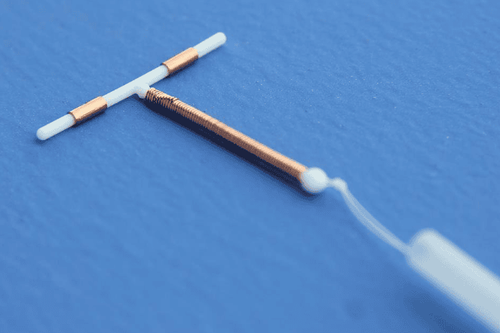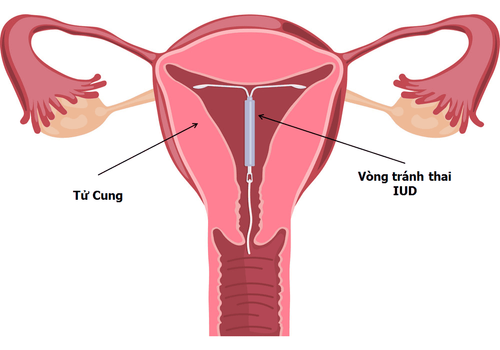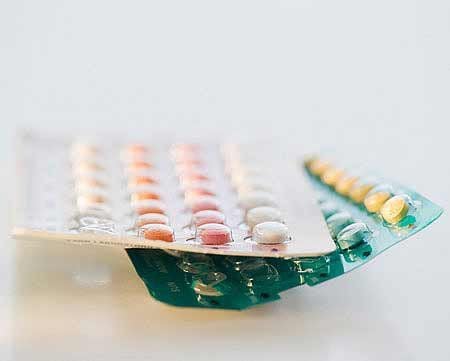This is an automatically translated article.
The article was professionally consulted by Specialist Doctor I Pham Thi Yen - Obstetrician - Obstetrics and Gynecology - Vinmec Hai Phong International General Hospital.Emergency contraceptive pills can help if you've just had sex with forgotten or improper use of protection. By using emergency contraception within 3 days of having sex (the sooner, the better), you can significantly reduce your chances of getting pregnant.
1. Mechanism of action
Emergency contraception is a method of using hormones or pills to prevent pregnancy. Most of these hormones are similar to those found in regular birth control pills. The drug works mainly by delaying the release of an egg or ovulation. Once the egg is implanted, emergency contraception is no longer effective. If you are already pregnant, these pills will not work as a contraceptive.Emergency contraception works well. But you should take it quickly - preferably within 24 hours of having sex. But in fact, the sooner you take it, the more effective it will be. If you take emergency contraception within 72 hours of having sex, the chance of pregnancy is only 1% to 2%.

2. Types of emergency contraception
There are 3 types of emergency contraception in pill form that are sold both with and without a prescription. Depending on the brand and dosage, you can take 1 pill or 2 pills.Medicines that contain a hormone called levonorgestrel: You should take these medicines within 72 hours of having sex. But the drug still works up to 5 days later, but less effective with the first time. Birth control pills contain progesterone and estrogen. If you take them in higher doses within 3 to 5 days of having sex, they will act as emergency contraception. This approach is effective, but less effective than other forms of emergency contraception. Side effects, such as nausea, may also be worse. This method should not be used regularly unless directed by your doctor.
Trắc nghiệm: Thuốc tránh thai khẩn cấp có những tác dụng phụ gì?
Thuốc tránh thai khẩn cấp giúp ngừa thai hiệu quả nhưng cũng là con dao hai lưỡi vì có thể gây ảnh hưởng tới khả năng sinh sản của người sử dụng. Theo dõi bài trắc nghiệm dưới đây để biết thuốc tránh thai khẩn cấp có những tác dụng phụ gì?The following content is prepared under supervision of Thạc sĩ, Bác sĩ y khoa, Tạ Quốc Bản , Sản phụ khoa , Khoa Sản phụ khoa - Bệnh viện Đa khoa Quốc tế Vinmec Phú Quốc
Copper IUD (IUD). Here is another approach. The medical staff will place a small plastic and copper IUD into your uterus to prevent sperm from fertilizing an egg, preventing pregnancy. The copper IUD is considered an effective form of emergency contraception and is suitable for women who want long-term contraception.

IUDs must be inserted by a healthcare professional within 5 days (120 hours) of unprotected sex or, if possible to estimate when you ovulate, up to 5 days after ovulation .
4. Side effects
Side effects of using emergency contraception are similar to those of oral contraceptives, such as nausea and vomiting, irregular vaginal bleeding, and fatigue. Side effects are uncommon, they are mild, and usually go away on their own without additional medication.If vomiting occurs within 2 hours of taking a dose, the dose should be repeated. Routine antiemetics should not be used before emergency contraception.
Pills used for emergency contraception do not harm future fertility. There is no delay in returning to fertility after taking emergency contraception.

5. In what situations can emergency contraception be used?
Emergency contraception can be used in some situations after sex. Includes:When having sex without using contraception. Sexual assault when a woman is not protected by an effective method of contraception. When there is concern about possible contraception, from improper use or failure, such as: a condom breaks, slips, or is used incorrectly; Consecutively missed combined oral contraceptives such as + 3 hours later than the time of taking the progestogen-only pill (minipill), or more than 27 hours after taking the previous pill;
+ 12 hours later than the usual time of taking a desogestrel-containing pill (0.75 mg) or more than 36 hours after taking the previous pill;
+ More than 2 weeks late for the progestogen injection norethisterone enanthate (NET-EN);
+4 weeks later for progestin-depot-medroxyprogesterone acetate (DMPA)-only pills;
+ More than 7 days late for combined injectable contraceptives (CIC).
Doctor Pham Thi Yen has 11 years of experience in examination and treatment in the field of Obstetrics and Gynecology. Doctor with strengths and deep understanding in:
Examination and consultation of normal pregnancies, pathological pregnancies, high-risk pregnancies Examination and treatment of gynecological diseases: cervicitis, cervical ectropion Surgery Laparoscopic surgery for gynecological diseases: ectopic pregnancy, uterine tumor, ovarian tumor Surgery for breast, vulvar, vaginal, cervical tumors Obstetric surgery: cesarean section, examination and treatment of endocrine disorders in women of all ages: puberty, reproductive age; perimenopausal age.
Please dial HOTLINE for more information or register for an appointment HERE. Download MyVinmec app to make appointments faster and to manage your bookings easily.
Articles refer to sources: webmd.com, nhs.uk, who.int, NCBI














